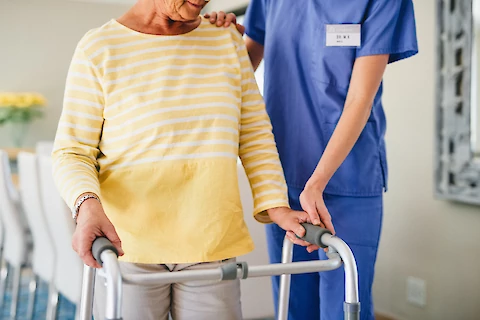
Experiencing a stroke can be a life-changing event for seniors, often presenting numerous physical and emotional challenges during the recovery process. As their adult child, it's essential to provide them with the necessary support, understanding, and encouragement they need to adapt to their new normal. With a compassionate approach and practical tips, you'll feel better equipped to make this challenging journey together. Here are some ways to help caring for seniors after a stroke more manageable for everyone.
Set Up Mobility Assistance
Mobility assistance plays a vital role in caring for and helping seniors regain independence and move safely around their homes following a stroke. Consider installing grab bars and handrails in high-risk areas, such as the bathroom and stairways, to provide extra support. Remove potential tripping hazards like loose rugs, and ensure ample lighting throughout the house. Depending on their mobility level, a walker or wheelchair may be necessary to enhance their movement and stability.
Encourage Physical Activity
To further improve strength and balance, encourage seniors to engage in physical activity. This may include light walking or stretching exercises suited to their abilities. Participating in physical therapy or rehabilitation programs can also provide targeted exercises and professional guidance tailored to their specific needs.
Develop a Communication Strategy
Stroke survivors may experience difficulties in speech and language, such as aphasia. Being patient and understanding is crucial when communicating with your senior parent. Speak slowly and clearly, using simple words and phrases to convey your message. Encourage the use of nonverbal communication, like gestures or writing, to help seniors express themselves. You can also consult with a speech therapist for additional support and strategies.
Provide Emotional Support
Providing emotional support for seniors is equally important as addressing their physical needs. The emotional impact of a stroke can be overwhelming, leading to feelings of frustration, depression, or anxiety. When caring for seniors after a stroke, empathize with their situation and validate their emotions, ensuring they know they are not alone in their journey. Encourage social interaction and engagement by involving your parent in family activities or outings. Support groups or community events can also help your parent connect with others facing similar challenges. If needed, seeking professional help, such as therapy or counseling, can further assist them in coping with their emotions.
Enroll Them in Therapy or Rehabilitation
Several therapies and rehabilitation programs are available to aid in a stroke survivor's recovery. Physical therapy can help improve strength, balance, as well as mobility by working with a physical therapist who specializes in stroke recovery. They will guide seniors through various exercises and techniques designed to address their specific limitations.
Occupational therapy focuses on regaining independence in daily activities. Occupational therapists provide strategies for adapting to new challenges. Speech therapy, led by a speech therapist, also aims to improve communication skills. They employ techniques for overcoming speech and language difficulties.
Seek Assistance From Senior Helpers Denver North
Providing family support during your senior parent's recovery from a stroke is crucial in ensuring their overall well-being. Remember that recovery is a gradual process that requires patience and understanding.
If you reside in Denver, Westminster, Broomfield, Northglenn, Arvada, Thornton, Aurora, Commerce City, Lafayette, or Wheat Ridge, and need assistance caring for seniors after a stroke, consider reaching out to Senior Helpers Denver North. We provide compassionate, professional care tailored to your family's needs. With a caring heart and the right resources, you'll be better equipped to support your parents in their journey toward recovery. Contact us today to learn more about our in-home care services.